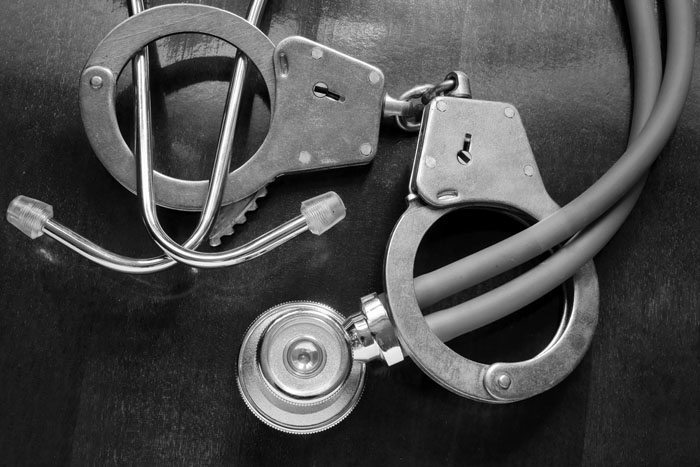It Is Past Time for El Salvador to Rescind Its Abortion Ban
As a mother, I have a moral obligation to protect girls and women all over the world from abortion laws like El Salvador's, which put their very lives in danger.

Read more of our coverage on the criminalization of abortion in El Salvador here.
I was on a plane coming back from Mexico when I first encountered the stories of children and young women in El Salvador suffering from the country’s universal criminalization of abortion, a law that is now more than a decade old. I’ve been an advocate for more than 15 years, but the news of people jailed for miscarriages, denied critical health care, and even driven to commit suicide for having to keep their pregnancy after being abused or raped still haunted me.
As I read the story of a 9-year-old assault survivor who was forced to carry the resulting pregnancy to term, I couldn’t help but think of my own daughter, who is also only a little girl. If our family were in El Salvador, would she be vulnerable to the same fate? For that matter, would my pregnancy history have put me at risk of incarceration for matters beyond my control?
Before we were able to welcome my daughter to the world almost four years ago, I suffered two miscarriages. My caring doctor and nurses did not accuse me of “killing my child” like one woman’s hospital staff in San Miguel, El Salvador, did before reporting her to the police. Instead, they told me I was going to be fine, and that miscarriages are a relatively common occurrence.
Many of my closest friends, too, had the same experience as I did—confirming the truth of my doctors’ reassurances. Now, we all have happy, healthy children. But if we lived in El Salvador, we could have been charged with aggravated homicide and sentenced to up to 40 years’ incarceration, like Maria Teresa and 16 other women who are currently imprisoned there on pregnancy-related grounds.
As a mother, I have a moral obligation to protect my daughter, along with other girls and women all over the world.
The law in El Salvador is killing the country’s people, and denying rights for many more. A new Amnesty International report documents story after story of this policy’s human cost. Health-care providers in El Salvador are being forbidden from acting to save women from life-threatening pregnancies. And again, those who have spontaneous miscarriages are facing prosecution and imprisonment rather than being treated with compassion and kindness.
El Salvador’s law, for all its devastating consequences, is not stopping women and girls from having clandestine abortions. World Health Organization data demonstrates that Salvadoran-style legal restrictions do not prevent people from undergoing the procedure; instead, they’re forced to seek dangerous operations in secret, risking their lives and health. Knitting needles, pieces of wood, self-prescribed doses of medicine, and other mechanisms are sometimes used as a last resort for desperate individuals. Worldwide, unsafe abortions are one of the leading causes of maternal mortality. In addition, there are indirect risks of giving someone no perceptible option: In El Salvador, for example, suicide accounts for 57 percent of the deaths of pregnant girls ages 10 to 19.
The human rights argument to end this sweeping ban is clear, and the international community has begun to take notice. Several UN bodies—including the Committee Against Torture and the Committee on the Rights of the Child—have criticized El Salvador’s abortion law as a violation of the fundamental rights of women and girls. These expert treaty bodies have called on the country to decriminalize abortion and to ensure its availability in accordance with international obligations, which include in cases of risk to a pregnant person’s physical or mental health, in cases of rape or incest, and in some cases of fetal impairment. Thus far, the nation has not responded to these demands.
Unfortunately, the criminalization of girls and women who need to seek an abortion is not exclusive to El Salvador. Growing up in Brazil, where the procedure is illegal in most cases, I heard too many similar stories to the ones from El Salvador. And they repeat in many corners of our hemisphere. In Latin America and the Caribbean, there are seven countries that either prohibit abortion altogether, or do not explicitly allow it in order to save the life of the woman: Chile, Dominican Republic, El Salvador, Haiti, Honduras, Nicaragua, and Suriname. Furthermore, safe abortions upon request are only available in the first trimester in Cuba, Uruguay, and Mexico City.
It is past time for us to overcome these discriminatory and unscrupulous laws that violate girls’ and women’s human rights. We must call upon El Salvador, and other countries throughout the world, to rescind the policies putting their people at risk of suffering, imprisonment, injury, and death.

